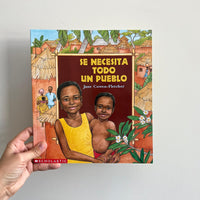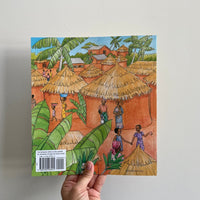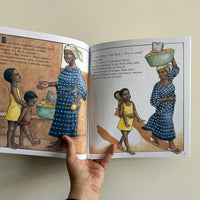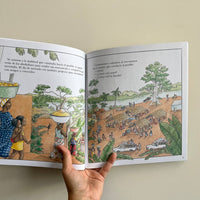



SE NECESITA TODO UN PUEBLO. PASTA BLANDA
- JANE COWEN-FLETCHER
- SCHOLASTIC
- Páginas: 32
- PASTA BLANDA
Based on the African proverb of the same name, this endearing story takes readers to market day in a West African Village, where a young girl named Yemi is entrusted to watch her little brother, Kokou, while their mother is busy selling mangoes. Yemi is sure she is old enough to handle such a responsibility, and as soon as their mother sets out her mat with the other vendors, Yemi wanders off with Kokou.
But the minute she turns her back, Kokou disappears. Yemi looks for him everywhere. She doesn't know that as she wanders the market stalls looking for him, her brother eats rice with a woman selling food, he keeps company with a potter, he even naps on a mat under the watchful eye of the mat vendor. When she finally finds Kokou, Yemi discovers just how many of the villagers have taken care of her brother, even when she was not there to look after him. As she returns to thank each person who fed Kokou or kept him company, she realizes the truth of her mother's words, that it does indeed "take a village to raise a child."
The basket-weavers, pottery makers, and produce stalls of a village market day are very familiar to Jane Cowen-Fletcher, who was serving in the Peace Corps in Benin, West Africa when she came across this profound and well-known proverb. Her story perfectly illustrates the proverb's meaning, and her colorful pictures of lizards clinging to walls and women carrying their market wares in great piles on their heads vividly evoke the world from which the proverb comes.




